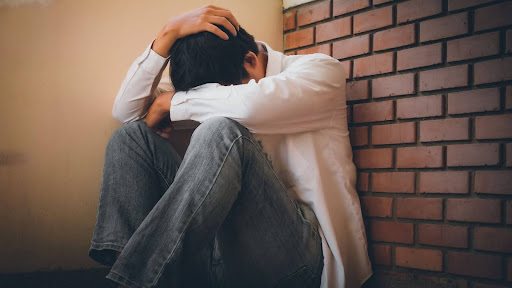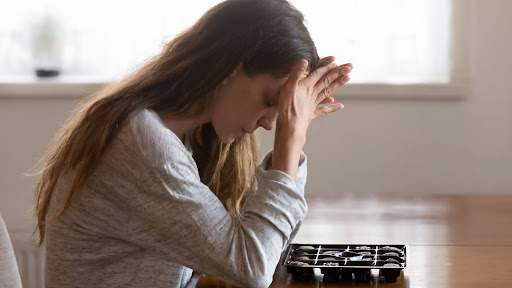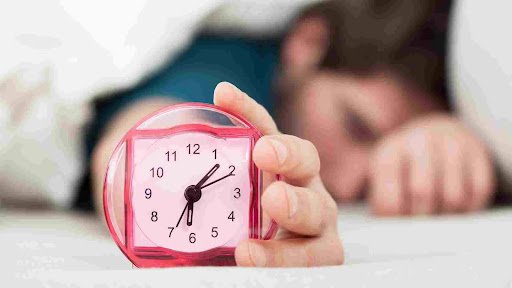How to Recognize and Manage Depression & Anxiety: A Simple Indian Guide
If you’ve been feeling down, anxious or just not like yourself for a while, you’re not alone and you’re not weak. Many people quietly deal with depression and anxiety without even realizing it. The good news is help is available and recovery is absolutely possible.Here’s a comprehensive, step-by-step guide to understanding these conditions and finding the right path forward.
What Is Depression? A Deeper Look
 Depression is more than a passing low mood or sadness; It’s a medical condition that affects how you feel, think and even how your body functions. While everyone experiences sadness, depression is marked by:
Depression is more than a passing low mood or sadness; It’s a medical condition that affects how you feel, think and even how your body functions. While everyone experiences sadness, depression is marked by:- A low mood almost every day for more than 2 weeks.
- Loss of interest or pleasure in activities you once enjoyed—including work, hobbies, socializing, or intimacy.
- Noticeable changes in appetite (weight loss or gain), and/or disturbed sleep patterns (insomnia or excessive sleeping).
- Prolonged fatigue and low motivation, despite adequate rest.
- Feelings of guilt or inferiority, sometimes even about everyday events.
- Unexplained aches and pains (like headaches, back pain or stomach trouble)
Depression can also present differently at various ages.. In children, depression can look like irritability or withdrawal. In older adults, it often shows up as physical complaints more than sadness.
Why Does Depression Happen?
There’s no one reason. It could be a mix of:- Brain chemistry
- Stress
- Family history
- Health issues
- Hormonal changes
- Or sometimes—no reason at all
And no, it’s not your fault.
Understanding Anxiety: Beyond Everyday Worry
 Occasional anxiety is a part of life, but clinical anxiety is different.It’s stronger, lasts longer, and can interfere with your daily life.
Occasional anxiety is a part of life, but clinical anxiety is different.It’s stronger, lasts longer, and can interfere with your daily life.Signs of anxiety include:
- Constant worrying you can’t control
- Feeling tense, shaky, or restless
- Accompanied by physical symptoms:.Fast heartbeat, sweating, dry mouth
- Linked with “avoidance”: People start dodging activities, places, or people to steer clear of anxious feelings.
- May cause panic attacks: Sudden intense fear with a sense of impending doom, shortness of breath or chest pain.
Types of Anxiety Disorders
- Generalized Anxiety Disorder: Chronic worry about multiple aspects of life.
- Social Anxiety: Intense fear of being judged or embarrassed in public.
- Panic Disorder: Recurrent, unexpected panic attacks and fear of having more.
- Specific Phobias: Strong, irrational fear of specific things (like heights, flying, animals).
How Depression & Anxiety Affect Your Life
- Work: Reduced attention, productivity, repeated mistakes, absenteeism.
- Studies: Poor concentration, declining grades, loss of academic interest.
- Relationships: Withdrawal from loved ones, irritability, neglect of social events.
- Physical Health: Greater risk for chronic illness, slower recovery from infections, headaches, digestive trouble.
Myths & Facts About Mental Health

- Myth: Mental illness only affects the weak.
- Fact: Anyone can experience mental health issues. Even the strongest people do.
- Myth: It’s “all in your head.”
- Fact: Depression and anxiety affect the brain just like diabetes affects your sugar levels.
- Myth: Therapy is only for people with “serious issues.”
- Fact: Anyone, at any stage of distress, can benefit from talking with a trained professional.
- Myth: Online consultations are not effective.
- Fact:Telepsychiatry through DocGenie offers trusted, confidential care that’s backed by expert recommendations from around the world..
Recognizing When to Get Help
Seek a professional opinion if you notice:- Symptoms lasting more than two weeks,
- You're struggling to manage daily life
- Any thoughts of self-harm, or others noticing major personality changes.
- Failure to improve with healthy lifestyle changes, self-help, or spiritual support.
- Repeat cycles of sadness, unexplained anger, or increased substance use.
What Happens in an Online Consultation?
Here’s what to expect with DocGenie services:- First Session: A psychiatrist listens carefully, asks about symptoms, and may inquire about family history or stress.Full privacy and confidentiality
- Assessment: May use questionnaires to deepen understanding.
- Personal Care plan: Can include therapy , self-help guidance, and medication only if really needed y.
- Ongoing support: Flexible follow-ups, home-based care and family guidance if needed.
Self-Care and Daily Coping Strategies
Even small steps make a big difference.- Routine and Structure: Regular meal times, consistent sleep and waking hours, dedicated time for self-care rituals.
- Physical Activity: Any movement counts—walks, yoga, stretching, dancing. Movement releases mood-enhancing neurotransmitters.
- Limit Alcohol and Caffeine: Both can worsen mood and anxiety.
- Mindfulness Meditations: Breathing exercises, guided audio sessions, prayer, or gratitude journaling help reduce mental noise.
- Social Connection: Even short daily chats or video calls with friends/family can lift your spirits.
- Break Big Tasks: Divide your to-do list into small, manageable steps. Celebrate small wins.
- Digital Health:Limit screen time, especially before bed.
Learn More: A Comprehensive Guide to the Types and Causes of Mental Disorders
Key Takeaways & Encouragement
- Your mental health is just as important as your physical health—so don’t ignore the signs when something doesn’t feel right.
- Getting help early, especially through private and secure platforms like DocGenie, can make a big difference. It can stop things from getting worse and help you feel better, faster and more safely.
- Remember you’re not alone, and with the right support, things can and do improve. Healing takes time, but it’s absolutely possible.
This article is written by Dr. Myle Muralidhar, MD (Psychiatry), Consultant Psychiatrist at DocGenie.Dr. Muralidhar takes a compassionate, patient-centered approach - making quality mental health care accessible and supportive for everyone, no matter where you are..



